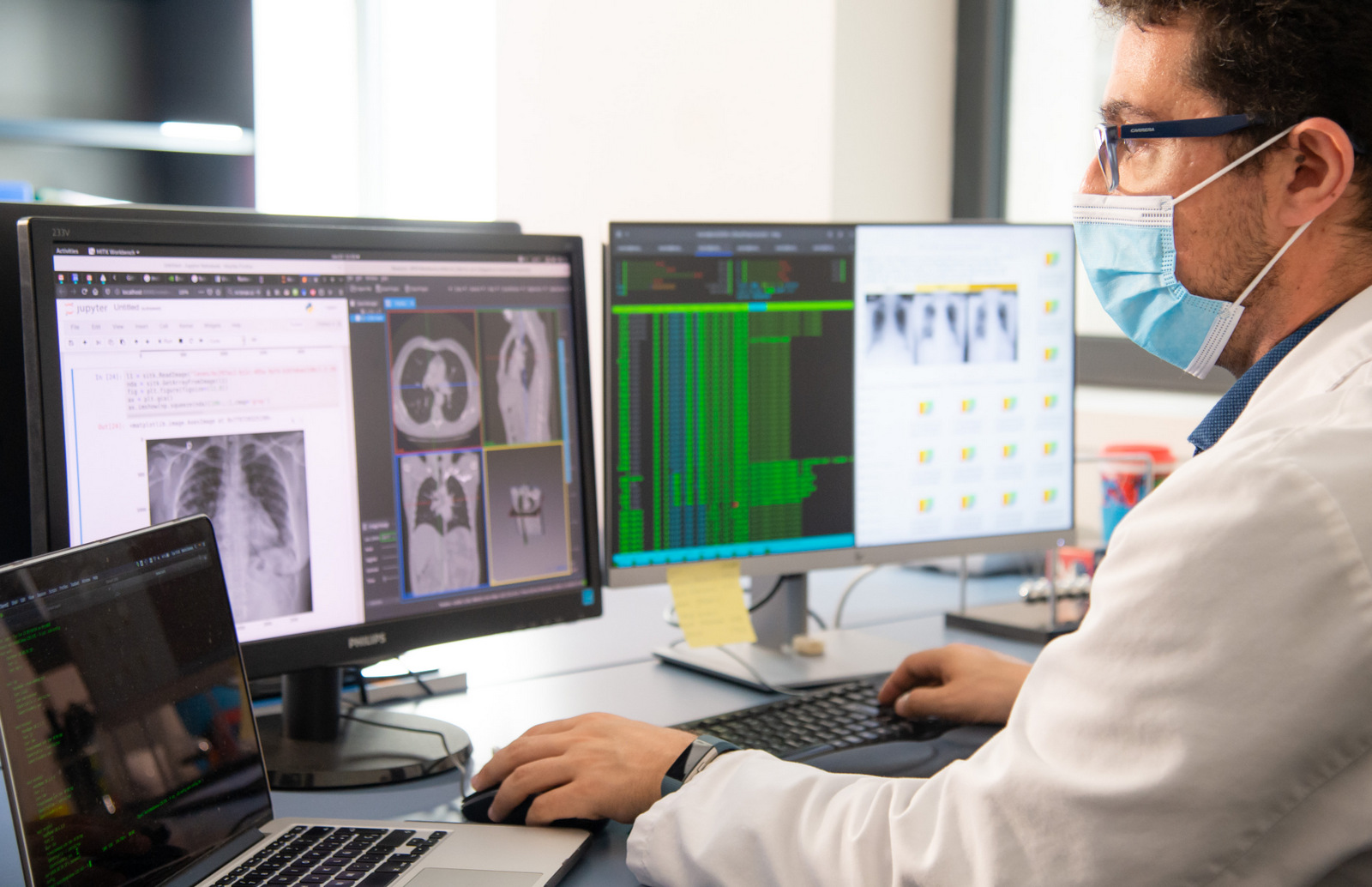Pompeu Fabra University and ISGlobal build an artificial intelligence model to predict the evolution of COVID-19 using IBM technology
Pompeu Fabra University and ISGlobal build an artificial intelligence model to predict the evolution of COVID-19 using IBM technology
Pompeu Fabra University and ISGlobal build an artificial intelligence model to predict the evolution of COVID-19 using IBM technology

Pompeu Fabra University (UPF) and the Instituto de Salud Global de Barcelona (ISGlobal) announced today they are working to create an artificial intelligence model that will help to predict COVID-19 respiratory failure running on IBM Power Systems to train data
UPF and ISGlobal are using AI capabilities such us deep learning and neural networks to analyse thousands of anonymized medical images and other medical data provided by hospitals from Madrid, Barcelona and the Catalan Government’s PADRIS research data programme, together with the huge processing capability of IBM Power Systems. The goal of the research is to predict, in seconds, early symptoms indicating that a patient might suffer respiratory failure that requires intensive care.
Roughly 80% (1) of patients infected by the virus are either asymptomatic or mildly ill, while 14% (1) suffer a severe illness that requires hospitalization, and 5% (1) develop severe respiratory failure that requires Intensive care. “Advanced estimates of the number of patients who will need treatment in intensive care units is essential to organize healthcare and prioritize resources in the event of new outbreaks of the disease. Unfortunately, it isn´t easy to predict which patients will develop a severe condition”, says the ISGlobal manager of Environment and Noncommunicable Diseases, Judith García Aymerich.
“We are training our model with image data such as thorax x-rays and more clinical data as this will provide our model with a greater prediction power”, says Mario Ceresa, a researcher at Pompeu Fabra University. “We are so thankful to have access to technologies like IBM Power Systems to train our models and reduce the time-to-results from months to only a few days”, adds Ceresa, researcher in the SIMBIOsys Research Group of the BCN MedTech Research Unit of the Department of Information and Communication Technologies (DTIC) at UPF.
“We are so proud to provide access to three IBM Power Systems servers for this promising research project. IBM is so committed to fighting against COVID-19 and its effects on our society”, says IBM Power Systems director, Juan Castillo.
Currently, a research team of bioengineers, epidemiologists specialized in respiratory diseases, and pneumology researchers from UPF and ISGlobal are working on this pilot project, which is in phase 1 of model training. Phase 2 is scheduled for the last quarter of 2020.
The UPF team is made up of Mario Ceresa, with Gabriel Bernardino (Cardiofunxion), Carlos Yagüe, Gemma Piella and Miguel Àngel González Ballester (ICREA-DTIC and coordinator of SIMBIOsys, within the BCN MedTech Research Unit)
- World Health Organization. (2020). Clinical management of severe acute respiratory infection (SARI) when COVID-19 disease is suspected: interim guidance, 13 March 2020. World Health Organization. https://apps.who.int/iris/handle/10665/331446. License: CC BY-NC-SA 3.0 IGO
For more information, please visit: https://www.ibm.com/impact/covid-19/.
